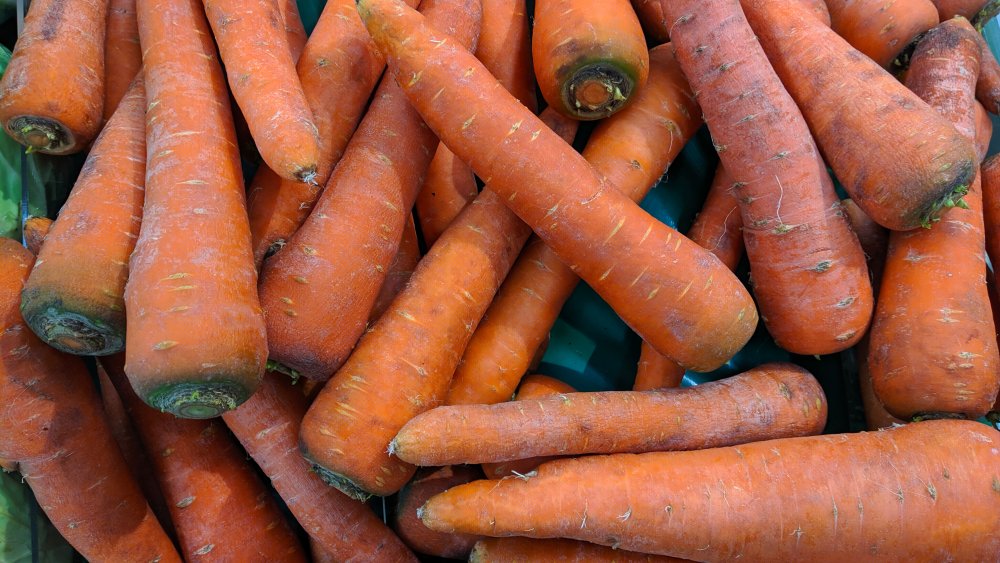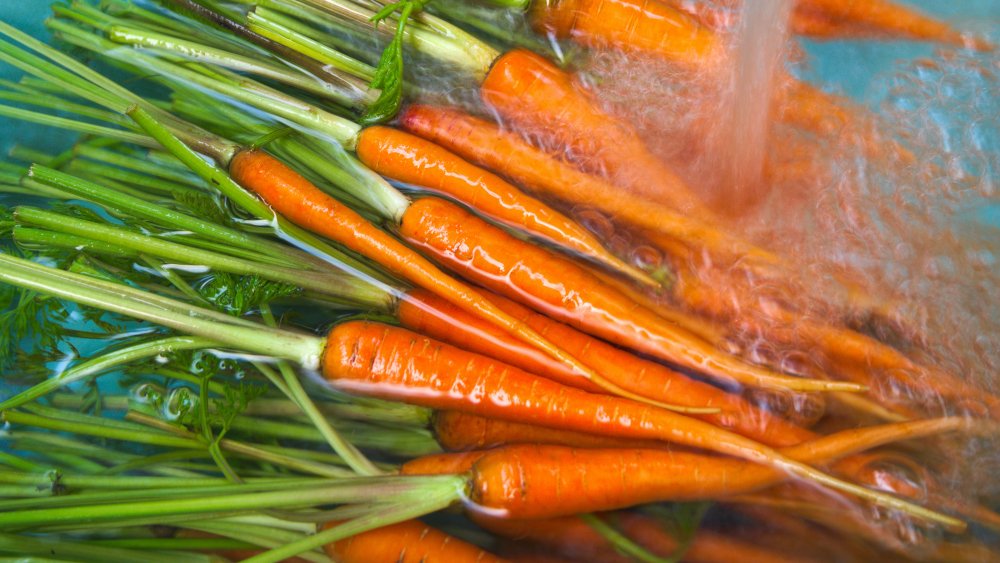What It Means When Baby Carrots Start Turning White
Carrots are one of the most loved vegetables we eat. They're highly nutritious and easy to munch on them if you are on the go. Per capita, Americans ate approximately 13.6 pounds of carrots in 2019 (via Statista). That's a lot of crunching. It might surprise you to learn carrots originated in Afghanistan in 900 A.D., but the orange variety that has become so popular in the United States didn't come into existence until somewhere between the 15th and 16th centuries in Europe (via WebMD). Today, this crunchy and tasty vegetable is touted as a low-calorie, high-fiber food. Clocking in at just 25 calories and 2 grams of fiber for half a cup, carrots can help you keep your waistline trim. These babies are also brimming over with vitamin A and can provide 73 percent of your daily recommended intake, promoting healthy eyesight and skin.
But have you ever noticed white spots on your carrots and wondered what they are and if the carrots are still okay to eat? Well, you are not alone. It used to be believed that these powdery white spots were a result of a chlorine residue that was used when processing carrots. This urban legend even suggested that those white spots might be a health concern related to cancer (via Water Quality and Health Council). Luckily, that is not the case, and here is what you need to know when white spots start to magically appear on your carrots.
White spots on carrots mean the carrots are drying out
White spots on your carrots are a result of your carrots drying out. It's the carrot's natural reaction to losing moisture. Sometimes called "white blush" these spots pose absolutely no harm to eat (via Nutrition Myth Busters). Why does it happen? The Water Quality and Health Council suggests that this drying-out process happens frequently with baby carrots because they have no outside skin to protect them. Baby carrots are often made by chopping up large carrots that have been peeled, leaving the carrot's surface exposed which results in a rough surface that scatters light, creating the perfect environment for the white blush to form.
To get rid of the white spots, you can soak your carrots in water for a few minutes; however, if you find that the spots are not going away, this could be a result of your carrots suffering some type of scrape or cut. The carrot's enzymes respond by creating something called lignin, which can be found in plant cell walls. If this is the case, you will not be able to reinvigorate your carrots and the white spots will persist. But it will not make them any less tasty (via Eat or Toss).

